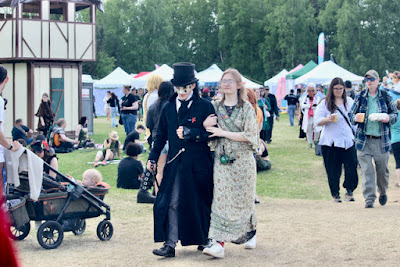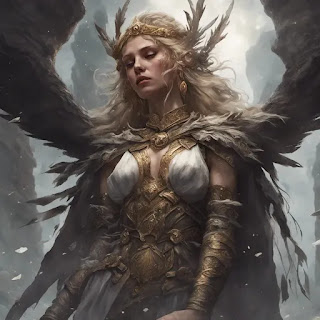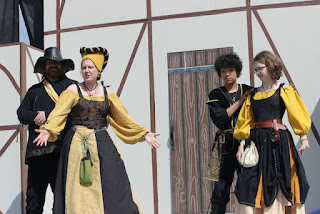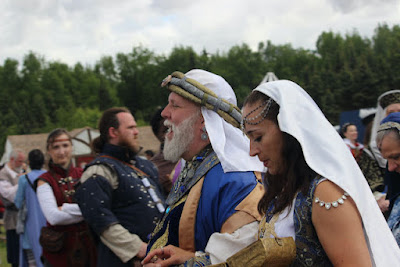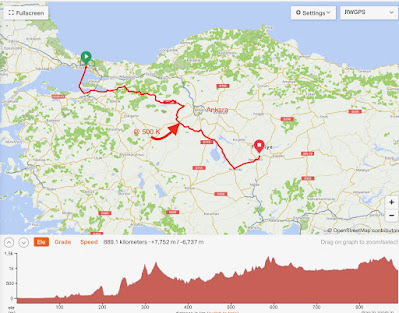Indulge me as I borrow this poem from the Poetry Foundation website. Coleridge was born in 1772, which means he was three years old when Paul Revere made his famous ride. Four years old when the Declaration of Independence was written. Nine when the Articles of Confederation were written. How much would a child of that age have been aware of the momentous events that were taking place then? He was 11 when the Treaty of Paris ended the war in 1783.
This poem was written in 1797 when Coleridge was 25, when John Adams was succeeding George Washington as the second president of the United States. And, a note to give poets and other writers hope, it was published in 1816, a year after Napoleon lost the Battle of Waterloo.
You can't read it like a tweet. You have to slow down. The words flow in a different rhythm. Let yourself relax and get caught up in that rhythm.
Kubla Khan
BY SAMUEL TAYLOR COLERIDGE
Or, a vision in a dream. A Fragment.
In Xanadu did Kubla Khan
A stately pleasure-dome decree:
Where Alph, the sacred river, ran
Through caverns measureless to man
Down to a sunless sea.
So twice five miles of fertile ground
With walls and towers were girdled round;
And there were gardens bright with sinuous rills,
Where blossomed many an incense-bearing tree;
And here were forests ancient as the hills,
Enfolding sunny spots of greenery.
But oh! that deep romantic chasm which slanted
Down the green hill athwart a cedarn cover!
A savage place! as holy and enchanted
As e’er beneath a waning moon was haunted
By woman wailing for her demon-lover!
And from this chasm, with ceaseless turmoil seething,
As if this earth in fast thick pants were breathing,
A mighty fountain momently was forced:
Amid whose swift half-intermitted burst
Huge fragments vaulted like rebounding hail,
Or chaffy grain beneath the thresher’s flail:
And mid these dancing rocks at once and ever
It flung up momently the sacred river.
Five miles meandering with a mazy motion
Through wood and dale the sacred river ran,
Then reached the caverns measureless to man,
And sank in tumult to a lifeless ocean;
And ’mid this tumult Kubla heard from far
Ancestral voices prophesying war!
The shadow of the dome of pleasure
Floated midway on the waves;
Where was heard the mingled measure
From the fountain and the caves.
It was a miracle of rare device,
A sunny pleasure-dome with caves of ice!
A damsel with a dulcimer
In a vision once I saw:
It was an Abyssinian maid
And on her dulcimer she played,
Singing of Mount Abora.
Could I revive within me
Her symphony and song,
To such a deep delight ’twould win me,
That with music loud and long,
I would build that dome in air,
That sunny dome! those caves of ice!
And all who heard should see them there,
And all should cry, Beware! Beware!
His flashing eyes, his floating hair!
Weave a circle round him thrice,
And close your eyes with holy dread
For he on honey-dew hath fed,
And drunk the milk of Paradise.
So why have I introduced this poem here tonight? In part because the post I was writing just isn't ready yet and I thought I shouldn't let too many days go by. But that's not why I offer Coleridge. Coleridge comes courtesy of Orhan Pamuk, the Nobel Prize winning Turkish novelist. In his incredible book Snow, poet Ka goes to Kars, a town in the northeast of Turkey, as a journalist. It snows the entire time he's there. Ka has lived in Germany and is a famous Turkish poet and while the people of Kars have different suspicions of why he is in Kars, they know he's a famous poet and he's been asked to recite a recent poem.
Just before his public recital, Necip, a local youth who has aspirations to be a poet as well, corners Ka and tells him about a landscape that appears to him when he tries to imagine a world where God does not exist. Pamuk writes:
"He thought about Necip's landscape - he could remember his description word for word as if it were already a poem - and if no one came from Porlock he was sure he would soon be writing the poem in his notebook."
The reader of Snow is just as surprised and puzzled by the reference to the man from Porlock as you might be. But Pamuk continues:
"The man from Porlock! During our last years in school when Ka and I would stay up half the night talking about literature, this was one of our favorite topics. Anyone who knows anything about English poetry will remember the note at the start of Coleridge's "Kubla Khan." It explains how the work is a 'fragment of a poem, from a vision during a dream"; the poet had fallen asleep after taking medicine for an illness (actually, he'd taken opium for fun) and had seen, in his deepest sleep, sentences from the book he'd been reading just before losing consciousness, except that now each sentence and each object had taken on a life of its own in a magnificent dreamscape to become a poem. Imagine, a magnificent poem that had created itself, without the poet's having exerted any mental energy! Even more amazing, when Coleridge woke up he could remember this splendid poem word for word. He got out his pen and ink and some paper and carefully began to write it down, one line after the other, as if he were taking dictation. He had just written the last line of the poem as we know it when there came a knock at the door. He rose to answer it, and it was a man from the nearby city of Porlock, come to collect a debt. As soon as he'd dealt with this man, he rushed back to his table, only to discover that he'd forgotten the rest of the poem, except for a few scattered words and the general atmosphere."
What does this have to do with anything? I suppose someone could use it to interpret what is happening in the US today, but for me it's just an interesting, unexpected pleasure of reading Snow.
Though we all get visits from the man from Porlock at the most inopportune times.
Oh, and it began to snow about the time I was reading tonight.




